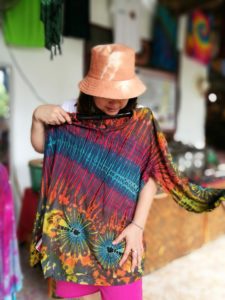- Calls to this hotline are currently being directed to Within Health, Fay or Eating Disorder Solutions
- Representatives are standing by 24/7 to help answer your questions
- All calls are confidential and HIPAA compliant
- There is no obligation or cost to call
- Eating Disorder Hope does not receive any commissions or fees dependent upon which provider you select
- Additional treatment providers are located on our directory or samhsa.gov
Learning to Clothes Shop in Eating Disorder Recovery

The process of recovering from an eating disorder is a transformational experience. As you recover, you will likely find that there are many things in your life that may need to change in order to support your recovery efforts, including how approach shopping for clothes.
In an eating disorder, it is not uncommon to feel as though your identity is defined by a clothing size, and sizes are often used as benchmarks by an eating disorder standard.
Part of the process of recovering is learning how to free yourself from this and learning how to embrace your body, regardless of what your size may be.
Shopping For Clothes That Fit
For many individuals in recovery, shopping for new clothes is an important step toward starting a new chapter in life, outside of the defines of an eating disorder. Even if you can fit into clothes used and worn during the days you were actively engaging in an eating disorder, you may find it therapeutic to shop for new clothes that you associate with being in recovery.
While it is not necessarily practical to pick up a whole new wardrobe, it is helpful to go through your clothes and identify any pieces that might be potentially triggering or necessary to get rid of (donate, pass down, etc). Were there certain articles of clothes that you wore to “body check” or assess how “successful” things had been with your eating disorder? Did you save a certain pair of clothes for when you achieved a “goal weight” that perhaps has always been unrealistic?
Letting go is hard, but through this process comes freedom from the unrealistic standards that have possibly kept you burdened for a long time. As you recover, you will begin to have a greater appreciation for your body and learn to accept the size you are in now.
Clothing sizes are relative and changing from designer to designer, and there is no sense in losing time or energy in obsessing about a size that you are, when this says nothing about you as a person, your qualities, personality, characteristics, abilities, etc.
Taking a Gradual Approach
 Finding clothes that you love and feel good in can be helpful to you as you continue on in your recovery journey. If you find clothing shopping to intimidating, bring a trusted loved one along.
Finding clothes that you love and feel good in can be helpful to you as you continue on in your recovery journey. If you find clothing shopping to intimidating, bring a trusted loved one along.
If you are in treatment, ask your counselor/therapist if you might be able to arrange an exposure therapy, a therapeutic intervention for confronting fears/anxiety, with clothe shopping and do this with your key support team [1].
This may mean trying on clothes without knowing sizes, or being able to face the challenge and process through your stressors with your support team.
Whatever you decide to do, know that you can make it through this transition toward a place where you ultimately feel safe and secure in the body you are in today.
 About the Author: Crystal is a Masters-level Registered Dietitian Nutritionist (RDN) with a specialty focus in eating disorders, maternal/child health and wellness, and intuitive eating. Combining clinical experience with a love of social media and writing, Crystal serves as the Director of Content and Social Media for Eating Disorder Hope/Addiction Hope, where her passion to help others find recovery and healing is integrated into each part of her work.
About the Author: Crystal is a Masters-level Registered Dietitian Nutritionist (RDN) with a specialty focus in eating disorders, maternal/child health and wellness, and intuitive eating. Combining clinical experience with a love of social media and writing, Crystal serves as the Director of Content and Social Media for Eating Disorder Hope/Addiction Hope, where her passion to help others find recovery and healing is integrated into each part of her work.
As a Certified Intuitive Eating Counselor, Crystal has dedicated her career to helping others establish a healthy relationship with food and body through her work with EDH/AH and nutrition private practice.
References:
[1]: What is Exposure Therapy? http://www.div12.org/sites/default/files/WhatIsExposureTherapy.pdfThe opinions and views of our guest contributors are shared to provide a broad perspective of eating disorders. These are not necessarily the views of Eating Disorder Hope, but an effort to offer discussion of various issues by different concerned individuals.
We at Eating Disorder Hope understand that eating disorders result from a combination of environmental and genetic factors. If you or a loved one are suffering from an eating disorder, please know that there is hope for you, and seek immediate professional help.
Reviewed By: Jacquelyn Ekern, MS, LPC on March 12, 2017
Published on EatingDisorderHope.com

The EatingDisorderHope.com editorial team comprises experienced writers, editors, and medical reviewers specializing in eating disorders, treatment, and mental and behavioral health.

